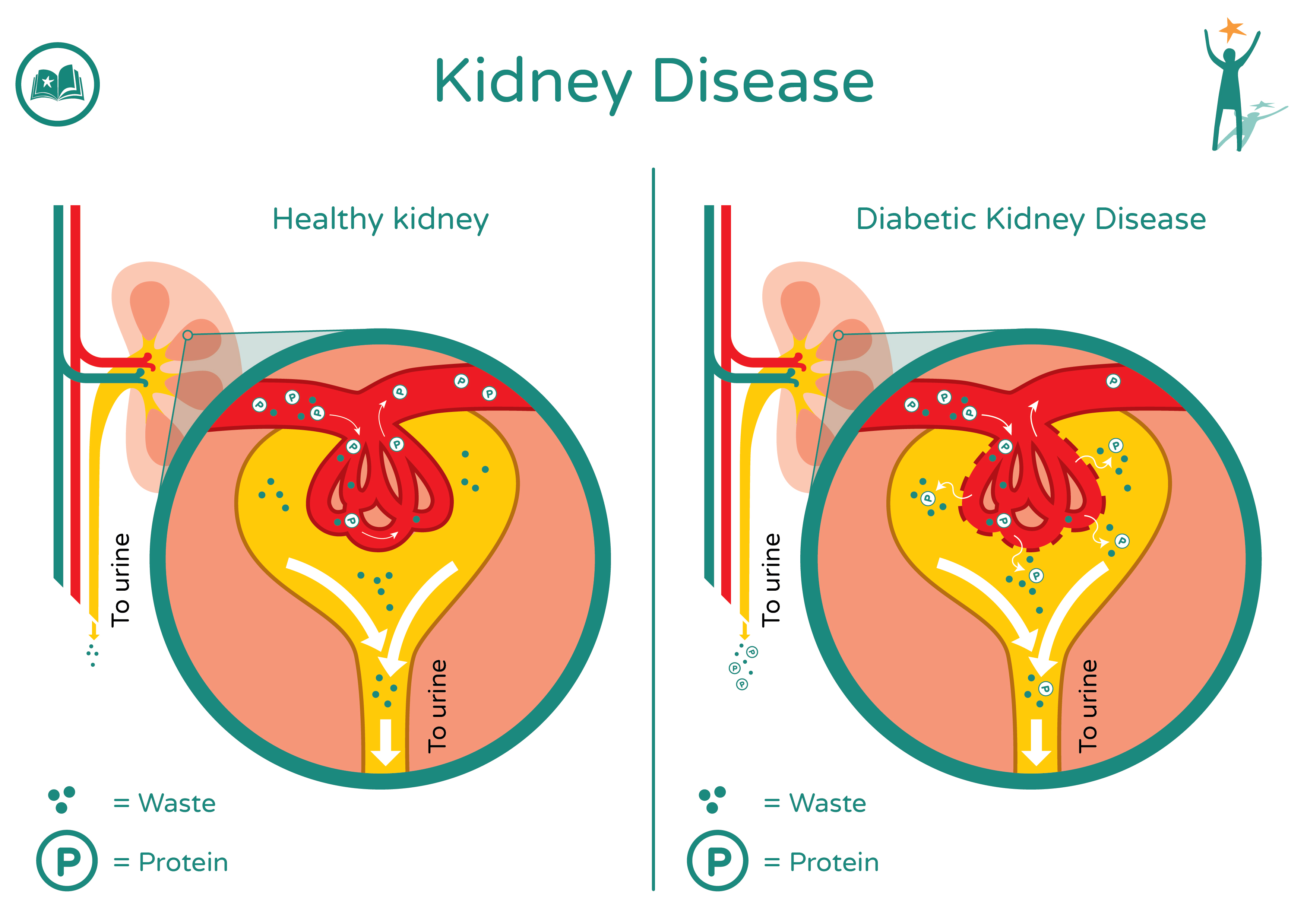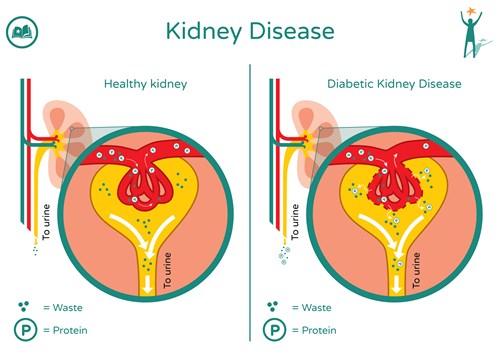Diabetes and the Kidneys
The kidneys filter waste products from the body and pass them out in the urine. This gets rid of toxins in the body and regulates its water balance.
If blood glucose levels have been persistently high over many years, the filters in the kidney may become leaky and no longer able to filter waste products as efficiently from the body.



When the small blood vessels in the kidney are damaged by high blood glucose this is known as ‘diabetic nephropathy’. Other factors contributing to the damage are high blood pressure and smoking.
Tests to assess kidney function
Urine test: An early morning sample of urine is best. Urine usually contains only small amounts of protein. If there are changes in the kidney function due to diabetes, more protein will be passed in the urine.
Blood test: This measures how well the body is filtering out waste products. The usual tests for this are (1) estimated Glomerular Filtration Rate (eGFR) and (2) creatinine level.
Blood pressure test: If your kidneys are already damaged it is important to maintain your blood pressure at normal levels, as high blood pressure can make kidney damage worse, which in turn will increase your blood pressure. It may be helpful for you to monitor your own blood pressure so that you can act quickly on any changes.
Screening and monitoring
In the diabetes clinic, you will be screened regularly (at least once a year) to pick up the early stages of diabetic kidney disease. This will be done through the urine and blood tests explained above. If kidney damage is found, you will be given advice and treatment to protect the kidneys and prevent the damage from getting worse.
Treatment
A slight increase in protein in your urine may be reversible by maintaining good blood glucose levels and normal blood pressure. Your doctor may also prescribe a type of medication called an ACE inhibitor (e.g. Ramipril, Captopril, Enalapril) or an ARB (e.g. Valsartan, Candesartan, Irbesartan, Losartan) which can also slow down the process.
In a small number of cases, kidney function can deteriorate. Dialysis may be necessary and a kidney transplant may have to be considered.
Additional Resources
For further information, have a look at Diabetes UK page on diabetes and kidneys.

